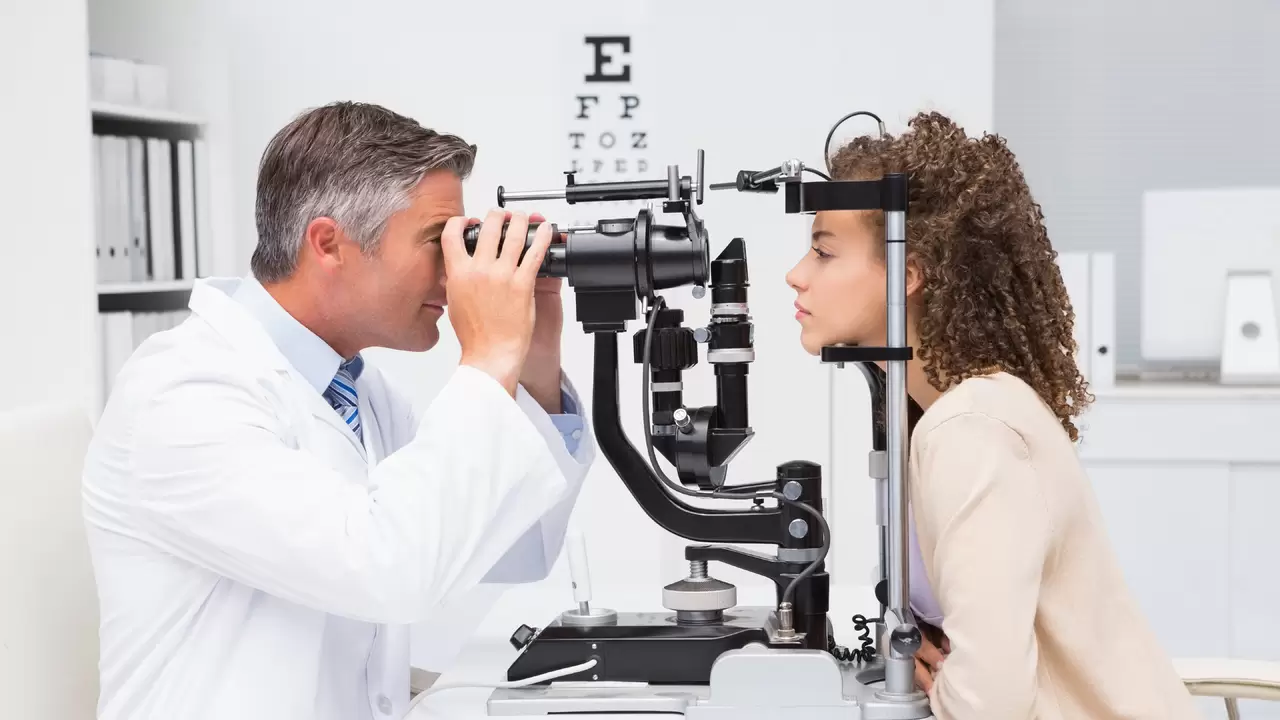
No matter what your age, don’t ignore these symptoms of a potentially serious eye disease.
If you are experiencing issues with your vision or have painful or irritated eyes, you may chalk it up to a number of things. You may think it’s time for a new pair of glasses, may feel like you’re experiencing eye strain from too much screen time or may put the blame on allergies getting the best of you. One thing you’re not likely to consider unless you are an older adult is that you might have a serious eye disease such as glaucoma. But don’t let your age prevent you from taking this possibility into account.
While people who are over age 60 are most at risk of glaucoma (or African Americans over age 40), the fact is that anyone can get the disease. That’s why it’s important to know the early signs and to get your eyes checked by a doctor if you experience them.
What is glaucoma?
Glaucoma is a disease that affects your eye’s optic nerve. There are many types of glaucoma, but it occurs when fluid builds up in the eye because it cannot drain properly. This puts pressure on the optic nerve, which can lead to vision loss or even blindness. With early diagnosis and treatment, this serious consequence can often be prevented.
Who is most at risk for glaucoma?
About 3 million adults have glaucoma, according to the Centers for Disease Control and Prevention (CDC), but about half of people who have the disease don’t even know they have it.
The following increases your risk:
- Being over age 60 (or over age 40 if African American)
- Being African American (African Americans are 6 to 8 times more likely to get glaucoma than whites)
- Having diabetes (people with diabetes are twice as likely to get glaucoma)
- Having high blood pressure, migraines or poor blood circulation
- Having high eye pressure
- Being farsighted or nearsighted
- Having thinner corneas
- Taking corticosteroids for a long time
- Experiencing previous eye injury or surgery
- Having a family history of glaucoma
What are the early signs of glaucoma?
The best way to know if you have glaucoma is to have a comprehensive eye exam. If you have any of these early signs, it’s especially important to get your eyes checked:
- Hazy, blurred or distorted vision
- Severe pain around your eyes or head
- Eye redness
- Seeing colored halos (bright circles) around lights
- Experiencing nausea or vomiting along with eye pain
If you experience any signs of glaucoma, don’t ignore them because you think you’re not old enough to have this disease. Since glaucoma can occur at any age, and since it can result in serious consequences such as vision loss or blindness if not treated, it is best to get your eyes checked regularly. The only way to diagnose glaucoma is with a dilated eye exam.
Copyright 2023 © Baldwin Publishing, Inc. Health eCooks® is a registered trademark of Baldwin Publishing, Inc. Cook eKitchen™ is a designated trademark of Baldwin Publishing, Inc. Any duplication or distribution of the information contained herein without the express approval of Baldwin Publishing, Inc. is strictly prohibited.
Date Last Reviewed: November 20, 2023
Editorial Review: Andrea Cohen, Editorial Director, Baldwin Publishing, Inc. Contact Editor
Medical Review: Perry Pitkow, MD
Learn more about Baldwin Publishing Inc. editorial policy, privacy policy, ADA compliance and sponsorship policy.
No information provided by Baldwin Publishing, Inc. in any article is a substitute for medical advice or treatment for any medical condition. Baldwin Publishing, Inc. strongly suggests that you use this information in consultation with your doctor or other health professional. Use or viewing of any Baldwin Publishing, Inc. article signifies your understanding and agreement to the disclaimer and acceptance of these terms of use.